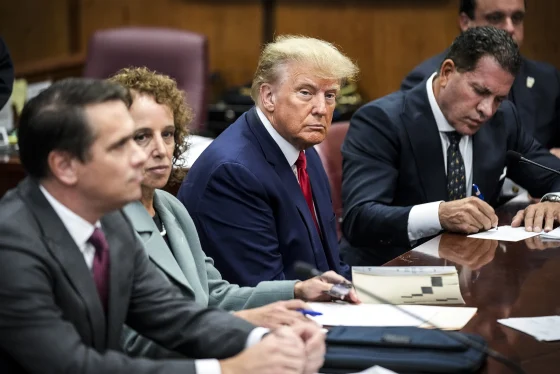American democracy faces an unprecedented moment and a monumental decision: will a former president who incited violence against his country be allowed to hold office again?
As of December 28, 2023, former president Donald J. Trump has been deemed ineligible to appear on the primary ballot by two states. The first ruling came from the Colorado Supreme Court, where, in a split decision, the justices determined that Trump cannot appear on Colorado’s ballot due to his role in the January 6 attack on the Capitol, where thousands of Trump supporters stormed the building in an effort to prevent the peaceful transfer of power to now President Biden. The following week, Maine’s secretary of state, Shennan Bellow, also barred Trump from her state’s primary ballot because he engaged in insurrection.
These rulings act under Section Three of the Fourteenth Amendment, which was ratified after the Civil War in an effort to block former Confederates from reentering the government. The amendment states that anyone who “engaged in insurrection or rebellion” while serving as “an officer of the United States” is disqualified from holding office. This article is extremely vague, especially as the Constitution never explicitly defines “insurrection” or states who counts as “an officer of the United States.” As a result, many are calling on the Supreme Court to clarify the amendment and make a universal decision on Trump’s eligibility. The Colorado Republican Party has already submitted an appeal in response to the Colorado ruling (the Trump campaign says they intend to do so in both Colorado and Maine) and has requested that the court release a decision by Super Tuesday (Mar. 5). As of yet, the Supreme Court has not agreed to hear the case, but the scope, expediency, and specificity of a decision could affect the 2024 presidential election as well as determine how other challenges to Trump’s eligibility play out–or whether they play out at all.
Meanwhile, many states and courts–including lower courts within Colorado and Maine–have dismissed efforts to remove Trump from the ballot, or ruled that the decision was not in their jurisdiction. Two such rulings came recently from Michigan and Minnesota, who said that they do not have the authority to prevent the Republican Party from including the former president on the ballot. In California, the Secretary of State, Shirley Weber, announced that Trump would remain on California’s ballot as she did not hold the authority to remove him. Even so, over thirty cases have been made to disqualify the former president, with roughly eighteen active as of late December.
Throughout the United States, legal battles continue to unfold while the nation waits for the Supreme Court to respond. As the country navigates this uncertain territory, it is clear that the decisions made in courtrooms and beyond will leave an indelible mark on the history of the United States and shape the future of American democracy.
